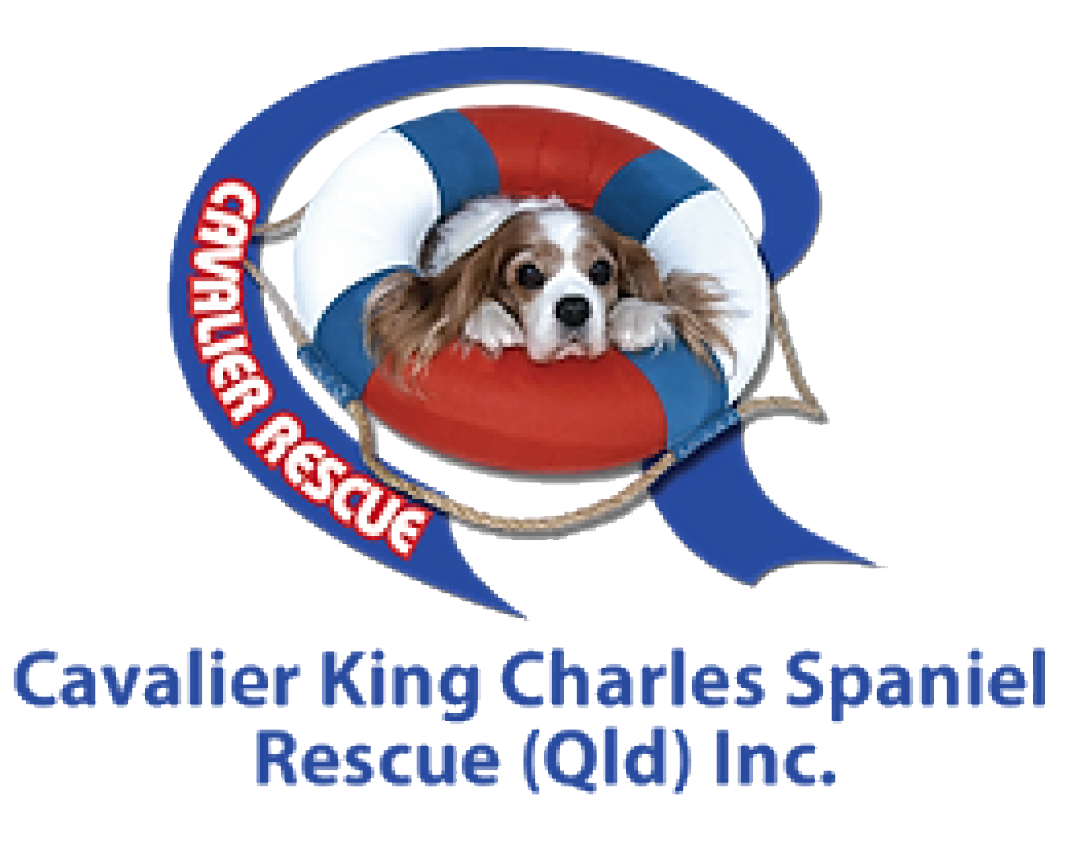
Become a Cavalier Foster Carer
Fostering a Cavalier
The journey to finding a loving forever home for the Cavaliers that are surrendered to us starts with finding a suitable foster carer. We are a small not-for-profit charity. We are not an animal shelter. We are a network of volunteers who open our homes and hearts to Cavaliers in need. We rely on foster carers to be able to rescue, rehabilitate and rehome Cavalier King Charles Spaniels in need in Queensland, Australia.
Why are Cavalier foster carers so important?
The purpose of fostering is to provide a safe space for our Cavaliers before they transition into their forever home. While with their foster carers our Cavaliers can recover from trauma and/or illness, receive medication and receive required training. This time also allows our foster carer to observe the dog’s temperament and personality, which helps us find the most ideal forever home for them and their needs.
Who is an ideal foster carer?
The majority of the Cavaliers who are surrendered to us are high needs dogs. This may include separation anxiety, complex medical conditions and/or behavioural challenges. Since CKCSRQ was founded in 1997 we have observed that Cavaliers who have been placed with foster carers who are retired or work from home full time thrive the most. On the contrary, the Cavaliers placed in homes with foster carers who work outside of the home, have busy schedules and lifestyles where the Cavalier is not the priority, have not achieved the same results.
To find out if you are suited to becoming a Cavalier foster carer, please read the Frequently Asked Questions - Foster Carers at the bottom of this page.
Applying to become a Cavalier foster carer
If after reading our Frequently Asked Questions below you are still interested in joining our Cavalier foster family, we invite you to complete an Expression of Interest application. You can do this by clicking ‘Apply Now’ below. Allow yourself at least 15-20 minutes and please provide as much detail as possible.
Frequently Asked Questions - Foster Carers
-
Your responsibilities as a foster carer are generally the same as if you were caring for your own dogs.
Responsibilities include:
Transportation: Transporting the Cavalier to our approved vets for their initial overall health check, and dental check. This also includes any emergency visits.
Transporting the Cavalier to our Re-Homing Coordinator or to an agreed meeting place for a meet and greet when there is a potentially suitable applicant to rehome the dog.
Shelter: Providing suitable shelter and accommodation for the dog during the day and at night. We favour carers who are able to provide inside accommodation for Cavaliers because they are not an outside dog.
Grooming: Washing and basic grooming – ie regular bathing, daily eye clean (wipe), daily ear clean, trimming of hair between feet and brushing the coat to keep it free from knots.
Food: Providing a high quality diet. Cavalier Rescue occasionally receives donated food to be passed on to foster carers, however, the majority of the time it is the responsibility of the foster carers to provide appropriate food for the dogs they accept. Whilst it is up to the foster carer, we support and prefer feeding a balanced raw or gently cooked diet over kibble where possible. Some dogs may have specific dietary requirements to alleviate allergies or illness or to increase or decrease weight and we will advise you of this as necessary.
Water: Providing continuous access to a clean water supply. Water bowls should be regularly cleaned properly to avoid build-up of bio-slime and bacteria in the bowl. Fresh water should be replaced at least daily.
Bedding: Providing adequate bedding that is clean, dry and comfortable. If you have a crate, this can also be beneficial for some dogs and we are able to discuss crating techniques with you as required.
Medication: Administer worming and flea and/or tick treatments when due.
Exercise and mental stimulation: Ensuring the dog has ample opportunities for exercise, mental stimulation and companionship. This may be daily walks, a fun game in the yard, exciting new toys, a trip to the park, interactive food toys and quality one-one-one time together.
Supervision and protection: Providing adequate supervision and protection for the dog, eg. if you live in an area that has cane toads or dangerous other wildlife, you have a pool or other water source that the dog has access to, you have other people entering your property, etc.
-
Cavaliers are very dependent on human companionship. The majority of the Cavaliers who are surrendered to us are high needs dogs. This may include separation anxiety, complex medical and/or behavioural challenges.
Since CKCSRQ was founded in 1997 we have seen that Cavaliers who have been placed with foster carers who are retired or work from home full time thrive the most.
On the contrary, the Cavaliers placed in homes with foster carers who work outside of the home, have busy schedules and lifestyles where the Cavalier is not the priority, have not been as successful.
Each application to become a foster carer will be reviewed individually.
-
There are various reasons why Cavaliers come into our care. Generally the Cavalier King Charles Spaniels that we help to rehome have been voluntarily surrendered by their owners. Occasionally we will obtain dogs through other avenues when we see owners trying to rehome the dogs themselves and we become concerned for the dog’s welfare.
Sadly, we also take in Cavaliers from time to time from failed backyard breeding operations and irresponsible puppy farms. These dogs may have medical issues that need attention and may have behavioural issues such as fear and anxiety. These dogs generally require a little more TLC and we will place them with a suitable foster carer for as long as we feel is necessary before rehoming them.
When owners voluntarily surrender their dogs to us, it is knowing that we have comprehensive knowledge and experience with this particular breed and they trust us to take care of their dogs and find the most loving, suitable new homes. Voluntarily surrendering a family pet is often a very emotional and gut-wrenching decision to be faced with.
We understand that although it is sad, sometimes it is in the best interest of the dog to be placed into a new home and we try to always offer our services with empathy and free of judgment. Our primary concern is to ensure these dogs are safe and looked after.
Some of the most common reasons we have Cavaliers come to us are:
Unforeseen changes in the owner’s financial or residential circumstances
Relationship breakdown
Allergies and illness in either the dog or the family members
Problems between the dog and another pet in the household
Behavioural issues that the owner is unable to resolve. Sometimes the causes include diet, training or environmental issues and are easily resolved once the dog is in a new home
Issues experienced as a result of the owner not being sufficiently prepared for owning a dog, or specifically a Cavalier King Charles Spaniel
The owner passes away and there are no other family members able to take the dog.
Once you have applied, the process of reviewing applications, conducting phone interviews and carrying out property checks is time consuming and needs to work around both volunteers’ and applicant’s work and personal commitments. It may take 2-3 weeks before a dog is matched and rehomed to their new family. As we have a very small crew relying on 4 or 5 core volunteers, we may not be able to get back to each applicant individually, however, we will post a notice on our Facebook page once a dog has been rehomed.
-
A Cavalier King Charles Spaniel may need to be in foster care from a few days up to several weeks. It depends on the dog’s needs and whether we have a suitable applicant already on our waiting list to provide a new home for the dog.
It is generally in the best interests of the dog that they remain with the same foster carer while they are waiting to be rehomed.
Most of our foster carers are prepared to take foster dogs for as long as required and this is ideal for us. However, there may be times when you are going to be particularly busy or away from home and you are only able to commit to foster care for a short period. Please let us know your wishes before accepting a foster dog.
-
Should our foster carers need to seek genuine emergency veterinary attention for a foster dog then they need to contact the Volunteer Rehoming Co-ordinator to obtain permission and instructions.
Cavalier King Charles Spaniel Rescue Queensland has existing relationships with a number of veterinary clinics and emergency clinics who give us reduced fees or discounts for foster dogs. This means that we are able to provide care to a greater number of dogs in future.
-
Cavalier King Charles Spaniel Rescue Queensland is responsible for the costs of necessary veterinary care for any dogs who are in temporary foster care. Typically this includes the initial vet check, desexing, vaccination, worming and microchipping. As well as an overall health and dental check. We provide our foster carers with the required worming and flea or tick treatments.
-
To be approved as a foster carer you will need a fully fenced, secure back yard, ideally with some shade or a covered area. We may request to carry out an inspection of your home prior to approving your application to become a foster carer. This is to ensure that your home is appropriately set up and secure for foster caring. Our Volunteer Foster Care Co-ordinator will provide advice on changes (if any) you might need to make.
-
No. It is not essential that foster carers have experience with dog training. However, we can always benefit from the extra knowledge of foster carers who have experience in training dogs, either professionally or through training their own dogs.
-
Fostering is not easy. Our foster carers are very passionate about their role in helping to rehabilitate and rehome Cavalier King Charles Spaniels.They are selfless, loving and committed to Cavaliers who find themselves in need of a new home through no fault of their own.
Naturally, when you put so much love and effort into a new member of the household, even if only temporarily, you develop a bond with the dog. Every foster carer has had more than one voice in their head saying “I’d like to keep this one”.
The honest truth is that it is always hard to see a foster dog leave – you wonder if the new owners are right, if they’ll learn all the little intricacies of this dog the same way you have, what they’ll feed him or her, where the dog will sleep and so on.
The other side of fostering is that it is also very rewarding to be a part of a dog’s rehabilitation. The biggest reward is knowing that you played a part in keeping this dog safe until they find their loving forever home.
It’s your choice. If you are really keen to open your home and heart to Cavaliers in need, give it a try. You might decide, like many of our foster carers, that the rewards outweigh the emotional turmoil of saying goodbye. But if you decide it’s really too much for you personally, then there is no obligation to continue fostering.
-
Please contact us immediately if there is any reason you become unable to continue caring for a foster dog that has been placed with you. We will make arrangements for another foster carer to take over from you.

